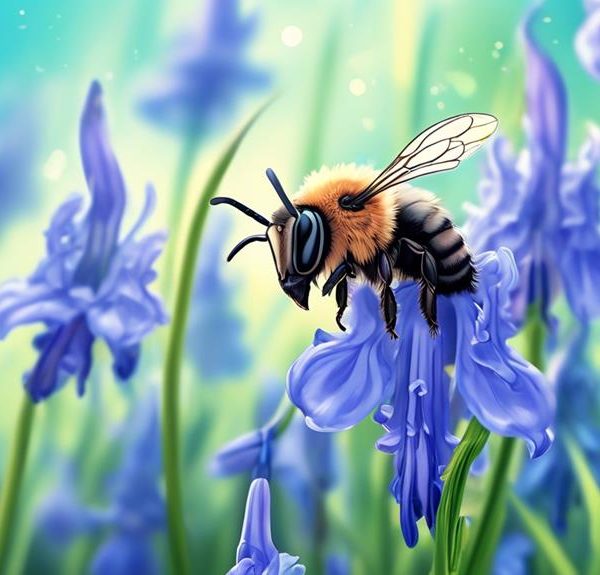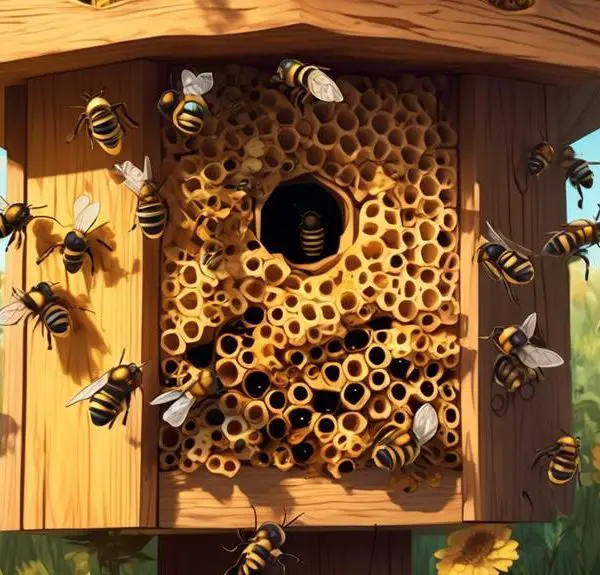Investigate the intriguing solitary lifestyle of mason bees and its impact on their pollination role, in our enlightening exploration.
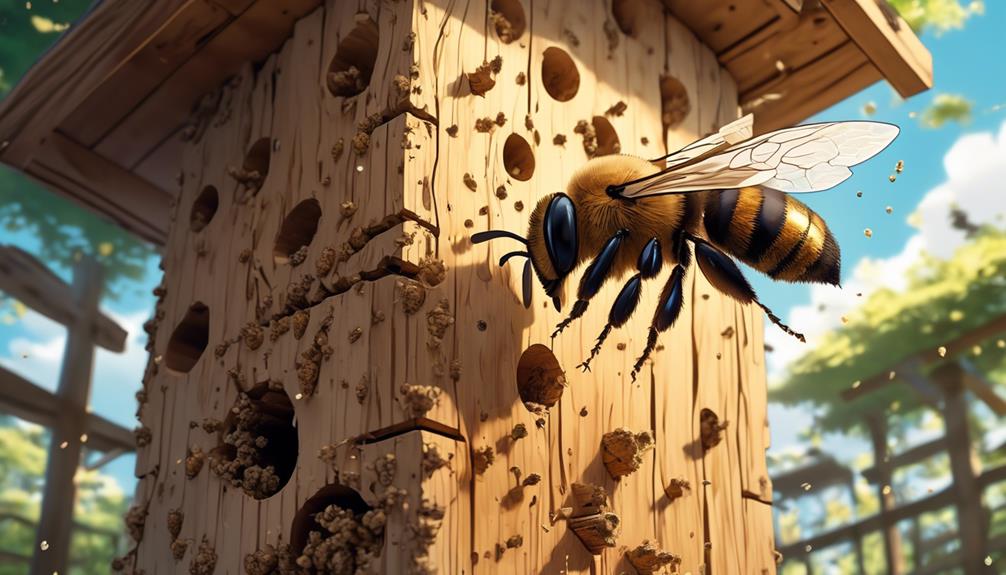
Are Mason Bees Solitary?
Have you ever wondered about the social habits of mason bees? Unlike their honeybee counterparts, mason bees lead a predominantly solitary existence. They don't form colonies or work collaboratively in hives. Instead, each mason bee operates independently, gathering nectar and pollen for itself, laying eggs, and departing this world without ever interacting with its offspring.
You might wonder, how does this solitary lifestyle affect their overall population and role in pollination? Hold on to that curiosity, as we're about to embark on an enlightening exploration of this fascinating subject.
Key Takeaways
- Mason bees are solitary insects that do not live in colonies.
- Each female mason bee creates her own nest and is responsible for provisioning it with nectar and pollen for her larvae.
- The solitary lifestyle of mason bees makes them highly efficient pollinators, capable of doing the work of many honeybees.
- The solitary nature of mason bees contributes to their resilience against disease or parasite outbreaks and promotes genetic diversity in the population.
Understanding Mason Bee Behavior
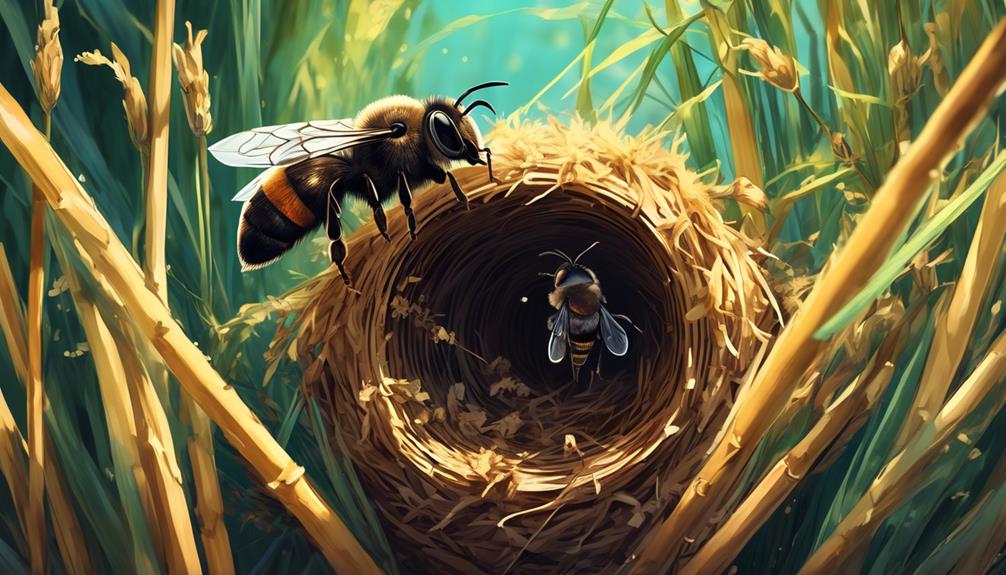
Ever wondered how a Mason Bee, solitary by nature, behaves throughout its short but productive lifetime? It's a fascinating journey. Unlike social bees like honeybees, Mason Bees are solitary. They don't live in colonies, have no queens or workers, and each female is fertile, capable of laying eggs.
You'd find each female carving out her own nest in already existing holes in wood or hollow stems, hence the name 'Mason' was coined. She meticulously builds cells, filling them with a mixture of nectar and pollen, her larvae's food. After laying an egg, she seals each cell with mud, creating a safe haven for her offspring. She'll repeat this process until the hole is filled.
Contrarily, males, who hatch first, have a shorter lifespan. They'll emerge, mate, and die within a few days. Females, on the other hand, live for about a month, enough time to lay their eggs and continue the cycle.
The Solitary Nature of Mason Bees
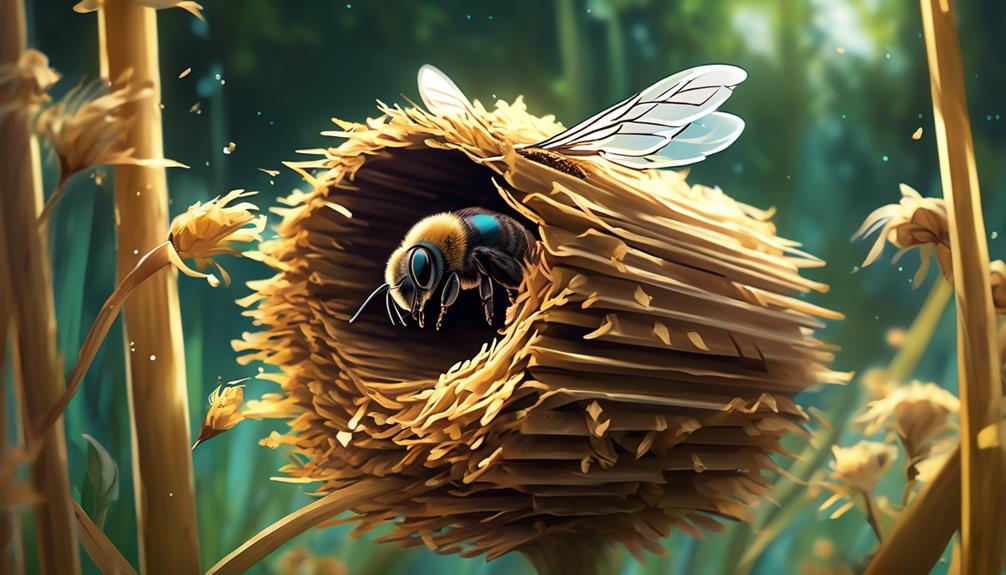
Building off our understanding of Mason Bee behavior, let's now explore more deeply their inherent solitary nature, which starkly distinguishes them from their social bee counterparts. Unlike honeybees or bumblebees that live in colonies, mason bees lead individualistic lives. They don't have a queen or worker bees. Each female is fertile and creates her own nest.
You might wonder how these solitary bees contribute to pollination, given they don't form large colonies like other bees. The answer lies in their efficiency. While they work alone, mason bees are remarkably productive pollinators. In fact, it's estimated that a single mason bee can do the work of 100 honeybees!
Their solitary lifestyle also affects their life cycle. Once a mason bee hatches, it's essentially on its own. The females mate, find a suitable nesting site, and then lay their eggs within individual cells in the nest. They'll also provision each cell with a food source for the developing larvae. Sadly, once this process is complete, the adult bees die, leaving their offspring to continue the cycle.
This solitary nature is an integral part of mason bees' survival strategy, highlighting the diversity of bee life strategies in our ecosystem.
Comparing Mason Bees and Honey Bees
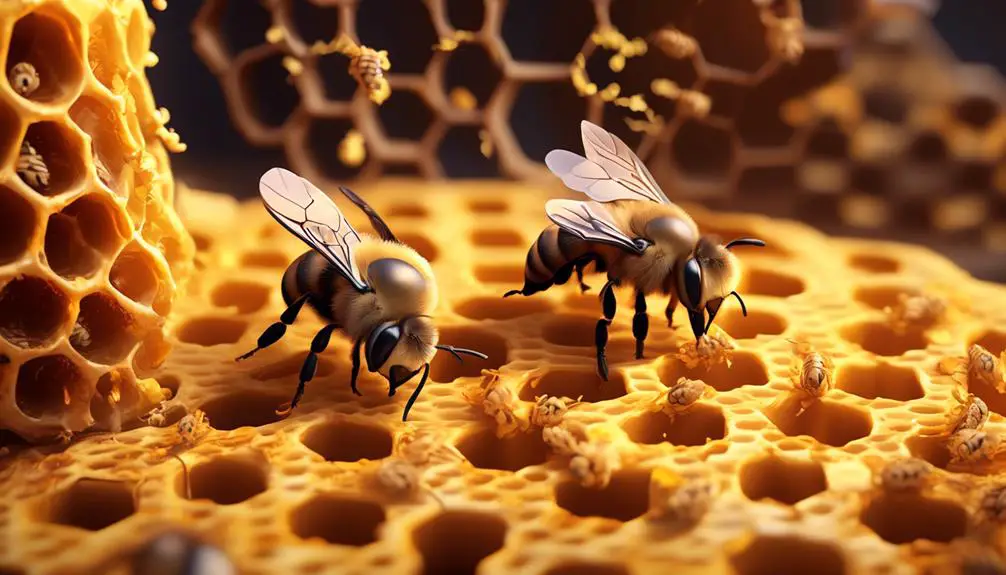
How do mason bees compare to honey bees, you might ask? Let's delve into the intriguing world of these two bee species.
Mason bees are solitary creatures. Unlike honey bees, they don't live in colonies nor do they produce honey. Each female mason bee builds her own nest, usually in hollow reeds or tubes, and lays her eggs. There's no queen, no workers, just individual bees doing their own thing.
Honey bees, on the other hand, are social insects. They live in large colonies with a queen, many workers, and a few drones. They're famous for their honey production, but they also play an equally important role in pollination.
When it comes to pollinating, mason bees are superstars. They're much more efficient than honey bees. It's estimated that it takes only 250 mason bees to do the same job as 20,000 honey bees. This is because mason bees will visit many more plants in a shorter amount of time.
Impact of Solitary Lifestyle on Mason Bee Population
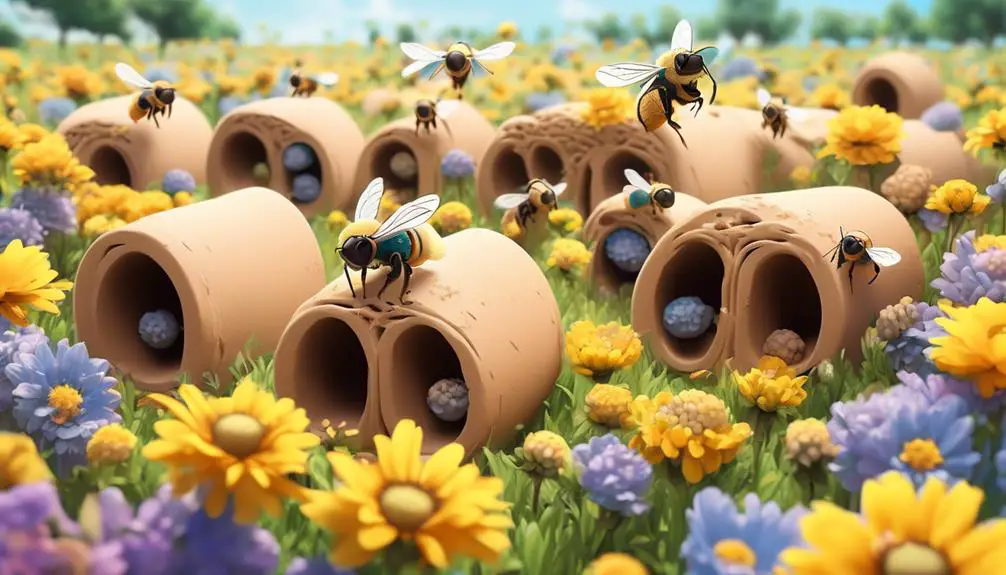
Navigating the solitary lifestyle of mason bees, it's crucial to understand its significant impact on their population dynamics. Unlike social bees such as honey bees, mason bees are solitary, which means each female bee mates and then independently builds nests and provisions for her offspring.
This solitary lifestyle influences their population in several ways. Firstly, it affects population growth. With each female bee capable of reproduction, mason bee populations can grow rapidly under favorable conditions. Secondly, it impacts their resilience. As each bee operates independently, disease or parasite outbreaks are less likely to wipe out entire populations.
Here's a quick comparison:
Solitary Bees Lifestyle | Impact on Population |
|---|---|
Independent Reproduction | Accelerated Population Growth |
Individual Nesting | Increased Resilience |
Thirdly, the solitary lifestyle of mason bees affects their genetic diversity. As each female mates with multiple males, there's a high gene flow in the population, which can be beneficial in adapting to changing environmental conditions. So, while it might seem that a solitary lifestyle could make a species vulnerable, in the case of mason bees, it's quite the opposite.
How Mason Bees Influence Pollination
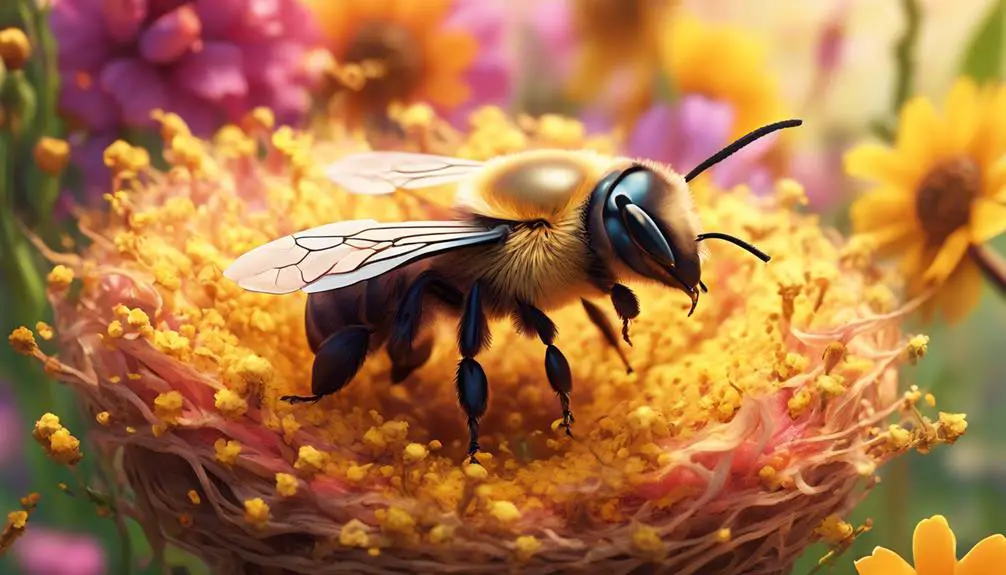
While the solitary nature of mason bees offers unique benefits to their population dynamics, it's equally important to consider the substantial role they play in pollination. Unlike honeybees, mason bees don't have pollen baskets. Instead, they coat their abdomen in a layer of pollen. Consequently, each flower they visit gets a dusting of pollen, enhancing cross-pollination.
Now, you might be wondering how this benefits the ecosystem. Well, mason bees' efficient pollination ensures the survival of various plant species, contributing significantly to biodiversity. Their pollination service is also essential for our food supply. In fact, these bees are known to improve the yield of fruit trees in orchards.
Moreover, mason bees' solitary lifestyle influences their pollination patterns. Since they don't live in colonies, they aren't restricted to foraging in a particular area. This means they visit a wider range of flowers, boosting pollination even more.
Conclusion
Yes, mason bees are indeed solitary creatures. Unlike honey bees, they don't form colonies or produce honey. Their solitary lifestyle has unique impacts on their population, but it doesn't hinder their pollination abilities.
In fact, they're incredibly efficient pollinators, often more so than their social counterparts.
In conclusion, understanding the solitary nature of mason bees offers insights into their behavior, population dynamics, and vital role in the ecosystem.

